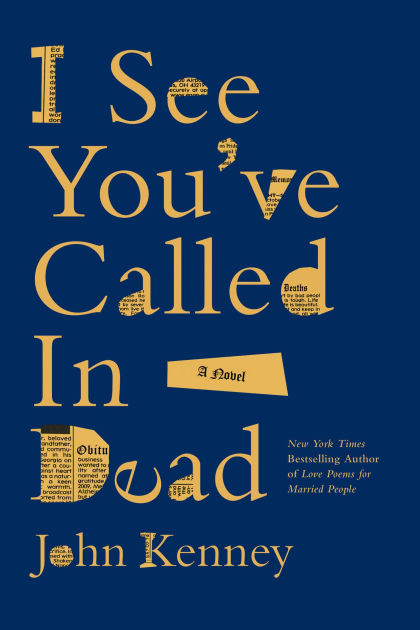
Do-It-Yourself Obituary
Bud Stanley writes obituaries for a living. Forty-four, divorced and adrift, he’s living his life on automatic, coasting along without aim or purpose. The book opens with a work colleague setting Bud up on a blind date. The woman arrives. She’s attractive, smart, personable—and accompanied by her ex-boyfriend with whom she’s just reconciled. The date is not a great success.
Returning home, Bud begins drinking, and “in the muddled, whiskey-soaked place where terrible ideas pose as good ones,” he starts writing his own obituary: Bud Stanley, the first man to perform open-heart surgery on himself, died today in a hot-air balloon accident…Stanley was married anywhere from four to nine times. His ex-wives, all friends, praised his unique lovemaking technique, one they said could last upward to twenty-eight seconds. The obituary adds that he was a member of the Jamaican Bobsled Team, ninth in line to the British throne, and the inventor of toothpaste…You get the idea. This drunken exercise would have been innocent, good fun, had Bud not accidentally uploaded his obituary into the wire service system.
The next morning, he is promptly placed on leave, an administrative step prior to being fired. Howard, his boss, mentor and friend, tells him, “I don’t think anything matters to you anymore, Bud. And that kind of breaks my heart…You are an obituary writer who does not understand the first thing about life.” Reading this modern urban tale, I kept hearing the Beatles circa 1965: He's a real nowhere man/ Sitting in his nowhere land/ Making all his nowhere plans for nobody.
In a scene mirroring the “Department of Government Efficiency” (DOGE), Bud learns he can’t be fired because the system now has him listed as deceased.
“I’m sorry,” I said. “I’m a little confused. I’m not dead.”…
“For all intents and purposes, you are dead to the company. Which is why you have rights.”
“But if I were alive?”
“You’d be fired and we would end your COBRA due to negligence on your part.”
“So I’m better off dead?”
“Certainly in terms of health and dental, yes.”
I See You’ve Called in Dead begins as a funny, breezy beach read, but as Bud starts taking stock of his “nowhere life,” the story expands emotionally, prompting readers to examine how we live our own lives—or don’t. Through a series of incidents, he begins to understand that the measure of a life is not in the quantity of its years but in the quality of its moments. Or as the Stoic philosopher Seneca expressed it: Life, if lived well, is long enough. By the end, Bud is writing a very different obituary for himself.
Warning: Amid the many laughs, there will be tears.
What would you write if you had to write your obituary? Today, right now. What comes to mind? What memories, days, moments? What people and experiences? I realize, at first glance, that the idea of writing one’s own obituary while still alive may sound morbid. It’s not, though. I promise you. It’s a needed reminder of who you are, of what truly matters. Because it’s your life and there’s still time to write it. Before I have to.
from I See You’ve Called in Dead
John Kenney
Zibby Publishing
This review first appeared in The Columbia River Reader (May 15, 2025.) Reprinted with permission.

